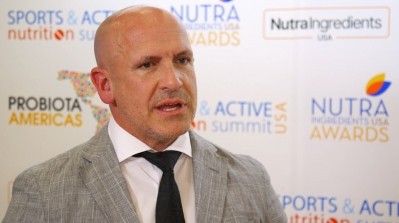NPA submits Citizen Petition on labeling of mushrooms & mycelia

“Mushroom dietary supplements are extremely innovative and as the business grows, require a standard nomenclature,” said Daniel Fabricant, PhD, president and CEO of NPA.
“By requesting that the FDA incorporate AHPA’s labeling guidelines or exercise enforcement discretion until the Agency publishes its own standard of identity regulation, we aim to protect domestic farmers who continue to be economically harmed by foreign entities damaging the credibility of this evolving market.”
The new petition, which can be viewed HERE, requests FDA to amend 21 C.F.R. § 101 to incorporate labeling aspects based on the American Herbal Products Association’s (AHPA) labeling guidance for mushrooms; and/or commit to exercising enforcement discretion until the Agency provides guidance or publishes a regulation concerning a standard of identity for dietary supplements or ingredients from fungal ingredients, including mushrooms, mycelia and fruiting bodies.
AHPA’s guidance policy on the Labeling of Dietary Supplements Containing Fungi Dietary Ingredients was issued in 2017 (and became effective in 2019), and calls for identification of each fungal dietary ingredient included in a dietary supplement by its common or usual name, and the stage(s)/ part(s) of the fungi present (for example, fruitbody; mycelium; sclerotium; spores; etc.) or the stage(s)/ part(s) of the fungi used for the manufacture of the extract.
Dr Fabricant told us: “AHPA provides good consensus guidelines to get rid of any confusion.”
A self-regulatory framework
Michael McGuffin, AHPA President, told NutraIngredients-USA: “AHPA is pleased to be acknowledged in this Citizen Petition for the good work we completed in 2017, with broad industry input, to provide a self-regulatory framework for accurate labeling of dietary supplements containing fungi dietary ingredients.
“As this important segment of the marketplace continues to grow, we encourage wide adoption of this AHPA guidance policy to establish consistent product labeling that clearly informs consumers.”
Imports
This is the second Citizen Petition concerning the labeling of mushroom extracts to be submitted in the past couple of months. As reported by NutraIngredients-USA, Nammex’s Citizen Petition asks the Agency to
1. Correct ambiguity in the dietary supplement labeling regulations to clarify that proper listing of ingredients from fungi on product labels includes identification of the part of the fungal organism from which the ingredient is derived.
2. Issue industry guidance regarding the proper labeling of fungal ingredients, including a Glossary of Mycological terms.
3. Increase regulatory enforcement to ensure foods and dietary supplements containing fungal ingredients are accurately labeled and take appropriate action against products labeled as “mushroom” when they do not contain mushrooms as claimed, but contain other fungal parts, such as mycelium, and fail to identify the presence of grain in product.
Dr Fabricant acknowledged the Nammex’s petition but said NPA’s petition was also directed at concerns about imports coming into the US with no nomenclature. As an example, he cited a 2019 article in The Packer focusing on the importation of Chinese shiitake logs, logs inoculated with the fungus in China and allowed to reach the mycelium stage before being frozen and shipped to the US where it then fruits and can be harvested for a much lower cost, and could be labeled as a “Product of the USA”. The article alleges that such products are mischaracterized, mislabeled, and misunderstood by federal agencies.
The need for clarifying fungal ingredient parts
When asked to comment on the NPA’s Citizen Petition, Jeff Chilton, President of Nammex, told us: “We are pleased that many industry organizations take the position that consumers deserve better guidance from our regulators to protect them from mislabeled products, an issue about which I alerted the Industry and AHPA since 2015.
“In its Citizen Petition to the FDA, The Natural Products Association (NPA) made some similar points to those in the Nammex Citizen Petition,” said Chilton, including, “the need for clarifying fungal ingredient parts in the federal code, recommending instituting the AHPA labeling guidance, and the pressing need for clarity given the rapid category growth. However, we do differ on some of the specifics of the NPA petition.
“From our perspective, the industry’s collective main goal should be to have, and follow, labeling guidelines that provide accurate product information that makes the contents clear to consumers. We don’t believe consumers should have to take a class in fungi to read a label. We do believe that it’s time for the FDA to recognize the Fungi kingdom in its labeling requirements as they are a distinct entity with fungal not “plant” parts.
“What do consumers think of when they hear the word “mushroom?” The term ‘fruiting body’ is used in the recent NPA petition and in other places but no consumer walks into the grocery store and asks for a ‘fruiting body’. We believe it is illogical from a scientific and common vernacular perspective to substitute ‘fruiting body’ for mushroom on a product label. It creates confusion and is used to obfuscate the fact that many products labeled as “mushrooms” are actually mycelium grown on grain and served with the grain. Nammex believes that the word mushroom should only be used on products when it is genuine mushroom, not mycelium.
“Using the terms “mushroom” and “mycelium” together is the same as describing two plant parts when often there is only one present. We don’t label a product as “plant root,” we identify the specific plant and the specific part of that plant i.e. olive leaf. Fungi products should be labeled no differently.”
Disagreement
There is disagreement among the fungal ingredient community, however, with Fungi Perfecti, M2 Ingredients, Gourmet Mushrooms, and Monterey Mushrooms recently releasing a letter describing the Nammex petition as “puzzling”.
“This joint letter comes in response to the puzzling opinion presented in the recent FDA Citizen Petition filed by Nammex, which obfuscates and misrepresents the use of well-established mycological definitions that impact responsible consumer messaging about mushroom products,” Fungi Perfecti shared in a statement.
















